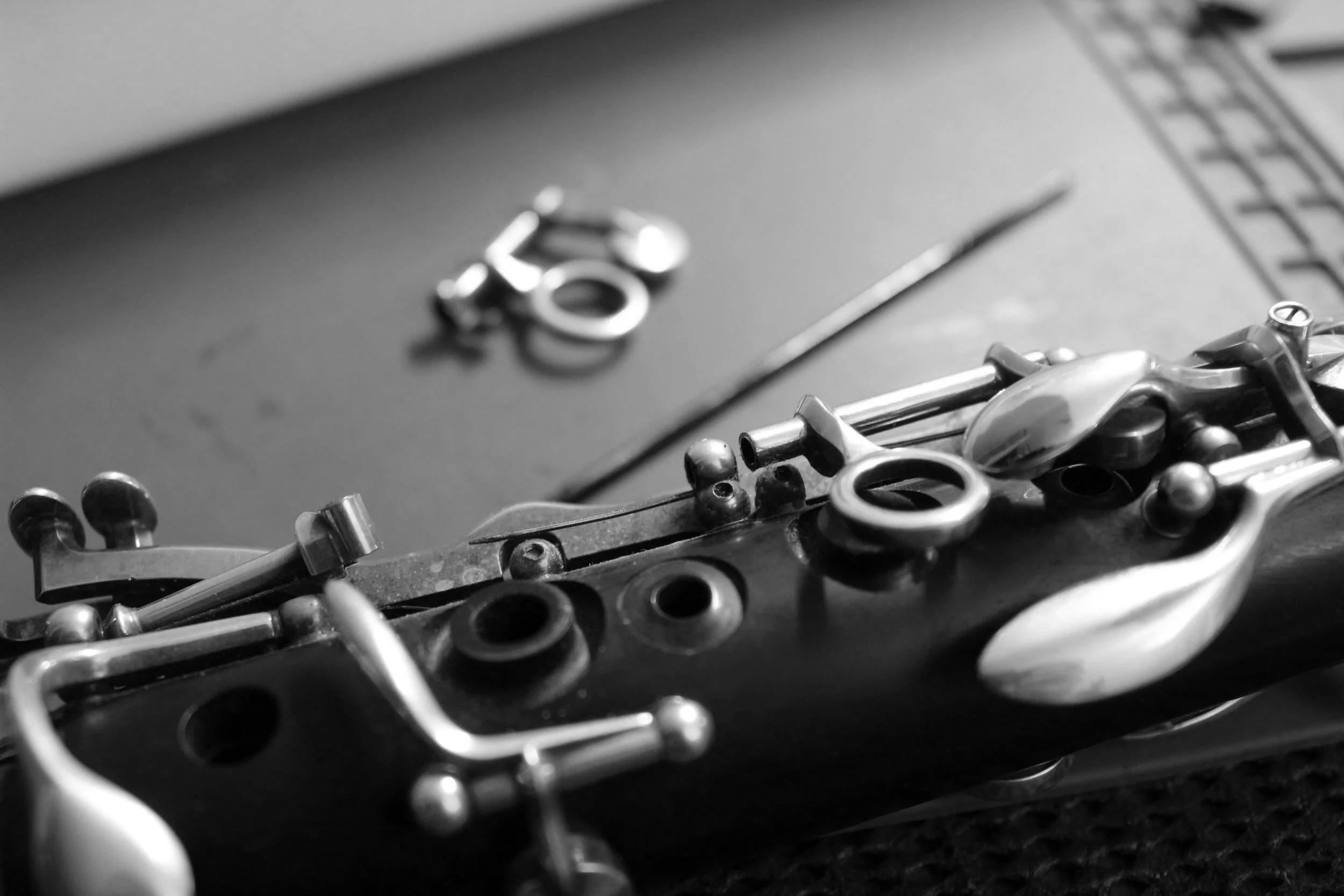Clarinet Repairs based in London
Our North London clarinet repair workshop offers a wide range of services to get your instrument back to good playing order, from small on the-spot fixes to full overhauls.
How Much Does a Clarinet Repair Cost in the UK?
At Woodwind London, a question we hear time and time again is: “How much does a clarinet repair cost in the UK?”The honest answer is that it depends on the instrument itself, as every clarinet needs to be assessed in person for an accurate quote. That said, there are a few key factors that can help you get an idea of what to expect.
The age of the clarinet is one of the biggest influences — after three or four years of regular playing, components such as pads, corks and springs will naturally begin to wear. Another factor is how long it’s been since the instrument was last serviced. Over time, moisture can cause oils to congeal, cork seals may perish, and wooden clarinets can even dry out if neglected, all of which can affect the quality of play and increase the repair cost. The type of clarinet also matters: student and budget models (typically priced under £500, and especially under £300) are more prone to wear and bending compared with intermediate or professional instruments, which are built to higher standards.
To get a reliable estimate, the best step is to book a clarinet assessment at our London workshop, where our expert technicians can evaluate your instrument and recommend the most suitable repairs or servicing.
Our Services
Full Playing Order
Starting From £85
The Clarinet will be thoroughly tested for leaks, and vacuum pressure. This service Includes straitening bent key work, replacing touch corks, replacing up to 3 pads, and regulation adjustment.
Please note these are guide prices subject to assessment and not inclusive of parts.
Full Service
Starting From £120
The Clarinet will have the key work stripped down, with the bore cleaned and Oiled, and keys polished, including changing perished key corks and up to 3 pads.
Please note these are guide prices subject to assessment and not inclusive of parts.
Full Overhaul
Starting From £250
Our Full Overhaul, is a complete and thorough, mechanical service of the instrument. All Pads and key Corks are changed, the keys are machine-polished, with the instrument play tested for tuning.
Please note these are guide prices subject to assessment and not inclusive of parts.
Please note: subject to availability, a replacement instrument can be rented at a reduced rate for the duration of your repair.
Clarinet Repair FAQs
-
See our blog here for more info.
-
Depending on the type of repair needed, servicing can take between 20 minutes to a week or so.
Our general playing order service usually takes a couple of days. The clean, oil and adjust one takes between 2 and 4 days and a full re-pad takes about a week for Bb clarinets. Please allow more time for alto or bass clarinets.
-
We recommend having your instrument checked out once every year. In the case of wooden clarinets, we recommend having them cleaned and oiled once every year to prevent cracking.
-
Putting a clarinet together incorrectly can lead not only to regulation issues but it can also bend keys out of alignment. This is an issue we see on a weekly basis.
When assembling, hold the second ring key down so that the top leaver of the bridge key stays up. Hold the lower joint by pressing down the key cups of the low E/B. Be careful not to hold the touch pieces as that can lead to bending and/or regulation issues. Use a twisting motion and if it feels tight or the cork is making a sound use cork grease.
-
Storing a clarinet in its case is the best way to prevent drops and falls. We recommend leaving it with the case open for a couple of hours after playing so that it can dry out. Accessories such as tarnish strips and silica gels are best kept in the case with the clarinet.
Plastic clarinets are not susceptible to temperature changes so they are easier to store. Wooden clarinets need extra care as the wood is sensitive to temperature changes. Your instrument should be stored in a place with stable temperatures and humidity as that can lead to cracking. An easy rule to follow is to store it where you live. Attics, garages, basements and sheds are not suitable for storing clarinets.
-
Most issues on a clarinet can be fixed: cracks can be filled; pads, springs and corks can be replaced and regulation can be adjusted. Broken keys can be soldered back together and straightened if bent. However, it is a question of whether the cost of the repair outweighs the value of the instrument.
-
With proper care and regular servicing, a clarinet can last almost indefinitely.



